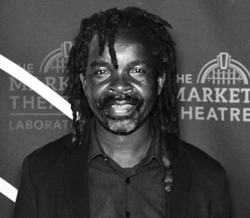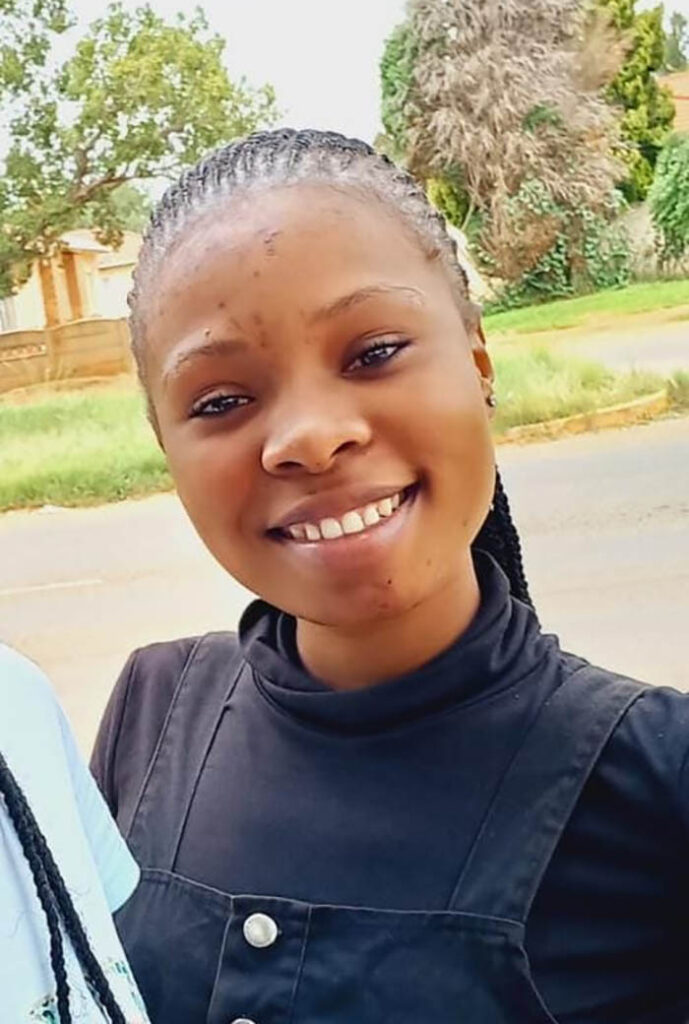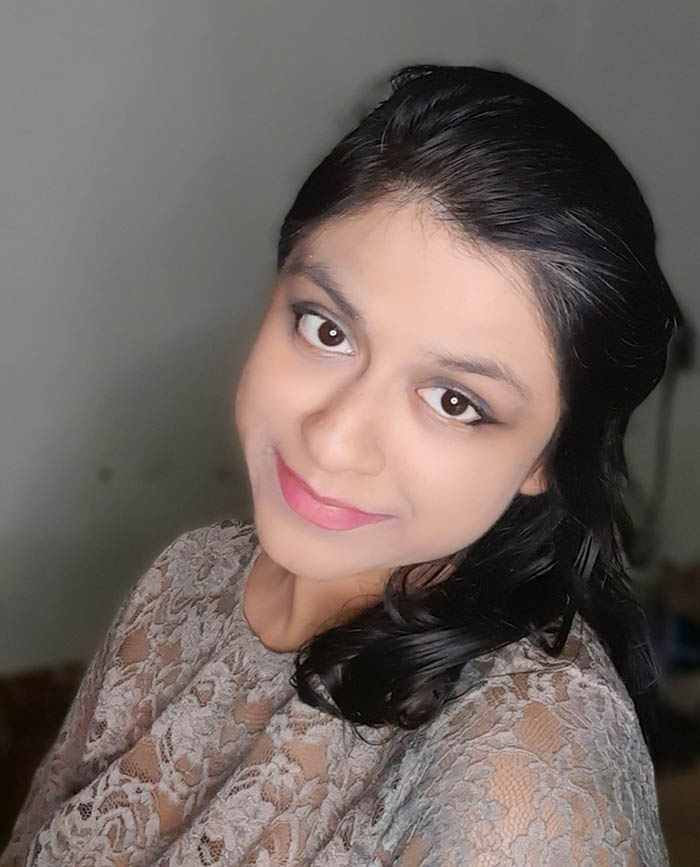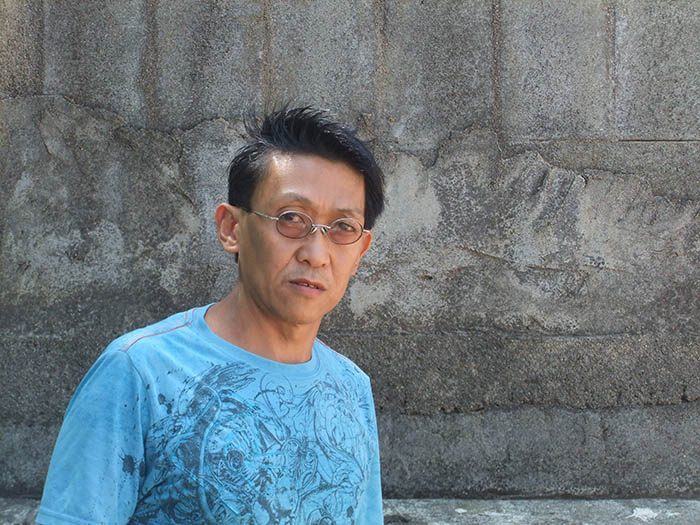How poetry resurgence is quietly taking root in South Africa again
As winner of Order of Ikhamanga in Silver dedicates Gottschalk the award to the late Sandile Dikeni. Dikeni is the People’s Poet of Cape Town during the 1980s, who opened opportunities for his own poems. Gottschalk calls upon persons and institutions to nominate him, even posthumously, for this award – in gold.
By Edward Tsumele, CITYLIFE/ARTS Editor

“We need to speak to Zodwa (Shongwe Market Theatre producer) and have poetry sessions here, just in the same way we used to have them at Windybrow. He was smiling but serious. His spirits were up. Motivated by the launch of poet Maakemele Manaka’s three books in Afrikaans, Sepedi and isiXhosa at the Market Theatre last week Thursday, April 27, 2023.05.03 When I responded in the affirmative, and actually pointed him to a venue that hosts poetry sessions in Melville every second Tuesday of the month. “Spilt Milk Social Café in Melville hosts poetry sessions every month. You need to check it out.” He became even more excited and surprised at the same time.
The point poet Majesty Mnyandu was making is that poetry for some reason over the past 15 years has taken a back seat, as compared to other genres of writing such as novels and non-fiction books in the form of memoir, biography and books that capture historical perspectives and epochs of this young nation.
However this year, there seems to be a resurgent interest in poetry, the translation of Manaka’s poetry book titled into the three indigenous languages by gifted writer Nape Motana (Sepedi), poets Ayanda Billie (Xhosa) and Pieter Odendaal (Afrikaans), being one particular case. And of course the regular poetry reading sessions that coffee shop owner and books publicist Janine Daniels-Hudson hosts at her coffee shop in Melville being other examples. Not forgetting the long running poetry festival in the country, Poetry Africa, which is hosted by the Centre for Creative Arts at the University of Kwa-Zulu-Natal.
Probably the event that put South African poets and their poetry and the importance it plays in the socialand intellectual development of the country, is the inclusion of a poet of stature Prof. Keith Gottschalk on the list of those awarded the National Orders by President Cyril Ramaphosa on April 2, 2023 in Pretoria.
The recognition of one of the most respected poets in the country, 28 April 2023, Prof. Keith Gottschalk, made writers in the country excited. Rightly so.
“The National Writers Association of South Africa (NWASA) proudly congratulates its National Steering Committee (NSC) Member Prof. Keith Gottschalk for deservedly receiving the National Order of Ikhamanga, in Silver, from the South African President Cyril Ramaphosa today, (28 April 2023), at the auspicious ceremony held at Sefako Makgatho Presidential Guest House.
The National Orders are the highest awards bestowed on ordinary South Africans or foreigners who doing or have done extraordinary things for South Africa. The Order of Ikhamanga is awarded to South African citizens who have excelled in the fields of the arts culture, literature, music, journalism and sport.
The Order of Ikhamanga was conferred to Member Prof. Keith Gottschalk for using his creativity to draw critical attention to oppressive and unjust laws through per formative political poetry. His work has provided strength and motivated many people to fight for liberation against apartheid.
Member Gottschalk has decided to dedicate the award to the late Sandile Dikeni, the People’s Poet of Cape Town during the 1980s, who opened opportunities for his own poems, and calls upon persons and institutions to nominate him, even posthumously, for this award – in gold.
“I appeal to all readers to take out of our libraries collections of our forgotten struggle poems from the 1960s-1980s, and re-read them, and for literary scholars to revise our knowledge of them.” Member Gottschalk further said. “A new generation of protest poets, cartoonists, and satirists is doing the same for the current epoch.”
Member Keith Gottschalk (1946 – ) is a Capetonian. He has had over 150 poems published in magazines. He performed his struggle poems at scores of meetings and rallies across the Cape Flats throughout the 1980s. Typically these were rallies of the United Democratic Front or Congress of SA Trade Unions. These poems were published after the fall of apartheid censorship as Emergency Poems, including his prison poems and protest poems. The title is a play on states of emergency. Keith was detained without trial during the 1985 state of emergency in Pollsmoor Prison as M4/85.
He was a founder member of the Congress of South African Writers (COSAW) in 1987 and served on its Western Cape executive. He co-founded with Peter Horn COSAW’s Lansdowne Local Writers circle in 1989, which he still hosts today, thirty-four years later. This is the longest-surviving literary workshop in Cape Town, and is today the NWASA’s NSC Member.
Member Keith also chairs the volunteers running Off the Wall Poetry, which since 2000 hosts every Monday evening in Cape Town a guest poet, both virtually and face to face in an Observatory pub: A Touch of Madness. The entity is also affiliated to NWASA. Keith also chaired for a decade the NEW CONTRAST board, publishing the longest-surviving literary journal in South Africa.
Recently, he published his collection Cosmonauts do it in Heaven, astronomy and spaceflight poems. This was shortlisted by the National Institute for Social Sciences & the Humanities: three poems are reproduced in both his collections. Keith is a member of both the Astronomical Society of Southern Africa and a fellow of the British Interplanetary Society. He has an entry in Wikipedia.
In his professional life, Member Keith Gottschalk is an alumnus of Wynberg Boys’ High School, and the University of Cape Town, and taught and researched in Political Studies for three decades at the University of the Western Cape. UWC recently awarded Keith in retirement the title of Adjunct Professor. His scholarly publications, journal articles and edited book chapters, were on South African politics during the last century, and, since 2000 focus on African integration and the African Union.
Thumbnail Publications
Emergency Poems. 1992. Mayibuye Centre & Snail Press. Bellville.
Cosmonauts do it in Heaven. 2022. Hands-on Press, an imprint of Modjadji Books. Cape Town.” wrote the association’s Secretary-General – Dr. Lebogang Lance Nawa on the association’s Facebook pages.
But of course there is another platform for poetry that is making immense contribution to the growth of poetry as an art form in the country. It is the AVBOB Poetry Competition, which is open to any poet at any stage of development.
And as part of its campaign to get poets to participate in this competition, the organisers have been running mini-specifically themed series of competitions.
The latest one has seen three poets being recognised, marking World Poetry Day. The prompts to the poets was to reflect on why poetry still matters.
On World Poetry Day this year, the AVBOB Poetry Project launched its second mini-competition for the year on the theme ‘Why poetry means the world to me’. The competition invited South African poets to share poems over how they have been shaped, challenged and consoled by poetry, and here are the three winning poems
“The poems that were entered for this competition inspired and amazed us,” said Johann de Lange, the competition’s chief judge. “It was especially impressive to find so many poems that spoke of a long-term commitment to poetry.”
He continued, “People still turn to poetry at times of personal or national crisis, as they did thousands of years ago. Poetry expresses what we feel in the face of the deepest sorrow or joy. We were reminded of this yet again while we read the poems that were submitted. It was particularly difficult to choose three winners this time, as the standard was very high.”

First-place winner, Hlobile Thwala (20) lives in Jeppes Reef, a small town Mpumalanga. She is currently applying for bursaries to go to university next year. She comes from a family of writers, and writing has always been a way to express herself. This is the first time she has shared her poetry in a competition, and she says that this is already enough motivation to share her work more with others in the future.
Her winning poem, ‘The Poetry of Meaning’, describes how poetry helped shape her relationship with her mother. “One time I found her notebook while cleaning her room, and I read it,” shares Hlobile. “That is when I learned just how much writing meant for mom, that as a single parent it was her way of voicing out her thoughts. Since that day, I discovered a passion for literature, especially poetry.”
“I was very excited when I heard I made it into the finals. This is already enough motivation for me to share my poetry more with others. I am grateful to my mother and brother for keeping me focused and for listening to my poetry. It is through them that I discovered the courage to join the mini-competition.”
CITYLIFE/ARTS here publishes their winning poems.
The Poetry of Meaning
Hlobile Thwala
She held the pen firmly between her thumb
and index finger,
While I stood there next to her,
In awe, frozen like a picture.
I could smell the sweetness of the black ink,
As it painted words on her notebook,
From line to line, but never quite reaching the end of each,
And though I had little knowledge what it was exactly,
Something about her face wouldn’t let me blink.
I would watch like that, every day,
On Sundays after church,
She and her old, dusty notebook,
She would write like an addict,
And I, her loyal spectator, began to feel the envy,
Creeping down my head to my heart.
The smell of the ink provoked my sinuses,
And the mere sight of that notebook,
Was torture to my senses.
I did not understand it back then,
Why Mamma loved her pen so much,
Almost as much as she loved me!
But once came that fateful day,
When she got taken away.
Every day after that, I would see the notebook,
And the black pen she used for her words,
They all stayed on her office desk,
Lonely and depressed.
It took me many days to gather the courage
To open it.
And when I eventually did,
I became Mamma!
I became a poet, and a storyteller,
I fell in love with black pens,
And notebooks altogether,
But most of all, I began to understand Mamma,
And all the days I would see her writing,
She was not just writing,
But crafting the path of meaning,
For me and her sons.

Second-place winner, Shiksha Dheda is from Johannesburg, and uses writing to avoid working on her electrical engineering master’s degree. Sometimes she dabbles in photography, painting and baking. Her writing has been widely featured in poetry journals. She is the author of Washed Away (Alien Buddha Press, 2021), and has chapbooks published with The Daily Drunk magazine and Fahmidan Publishing & Co.
“I seriously started writing in 2020/2021 when I felt that I had lost control over everything else in my life. So, I did whatever was possible for me at the time: I observed my life falling apart and I documented it,” explains Shiksha. “In doing so, I found a strange companionship with readers and writers that I never knew existed. Poetry became a medium, a light that lit an otherwise darkened path and showed me myself, and that is why poetry means the world to me.”
“‘Fungal invasion’ illustrates the complicated nature of my relationship with English and how despite having its shallow roots deeply ingrained in my voice (both spoken and written), my lineage, my ancestry, my culture (represented by my accent) still somehow seep through when I’m not paying attention. For me, ‘Fungal Invasion’ truly captures the nuanced and complex relationship that I have with my culture and community (represented, but not reduced to language).”
Fungal invasion
Shiksha Dheda
It all began with one mushroom.
One quickly became two,
two became four,
four became eight.
The mushrooms grew on the bark
of my great grandmother’s
bayan tree tongue.
Slowly.
Growing.
Continuously.
Mushrooms
– sprouting everywhere –
filling the pores of her tongue,
taking up space in her mouth,
growing to touch her alta-kissed
toes.
I saw her when she died.
I saw her fungus infested face.
Mushroom bulbs growing
from her eye sockets,
rows of mushrooms along
her eyelids,
bulbous bells hanging from her
ears.
A giant mushroom adorning
her lifeless forehead
– where a traditional tikka should be.
Sometimes, when I speak English,
her fingers reach out from below
the soil of my banyan tree
– from its roots –
– where my alta-kissed bare toes ought to be.
Sometimes, they reach out and grab me,
they grab my vocal cords.
Her fingers wrap so tightly around my
throat– around my tongue –
– around my mouth –
they grab the pristine English mushrooms
– cover them with the dirt
that banyan roots grow in
– cover my English words
with my Indian accent

Third-place winner, Jim Pascual Agustin, is a poet and translator living in Cape Town. He has published several books of poetry since 1992 and has won the Gabo Prize for Literature in Translation as well as first prize in the Poetry in McGregor Competition and in a previous AVBOB Poetry mini-competition on the theme of Labour.
“I always look at calls for submissions to journals and entries for competitions as both a game and a challenge,” explains Jim. “It just so happened that I had written a poem that I thought might be a good fit with the AVBOB theme, so I entered that one. ‘You Were Never Alone’ is a bit like a letter to myself, but as if I were someone else at the same time.”
You Were Never Alone
Jim Pascual Agustin
apologies to Sting
This is a way to mend
what I did not know was broken.
For how could someone missing
something like a leg or an arm
keep on running? Keep on flapping?
Yet you did, and further than anyone
ever dreamed of one born
beneath an angry star. You did
perhaps despite that absence
or because. Too late
now that all the feathers
have been pushed out
like titanium needles
through bone, through skin,
filament by filament drying
in the evening sun. Sting of dawn
a blessing, a promise of flight
of youth and all that would be lost.
So long ago.
So long to go.
Poetry offers us one of the surest ways to hinge into other worlds, whether they are secret and interior or outside us. As the poems entered for this competition clearly show, it is this gift that keeps us writing, trying to find our best words to name the things and people we treasure and love.
The AVBOB Poetry Competition will reopen its doors on 1 August 2023 for poems in all 11 official South African languages. For updates and information on how to enter, please visit www.avbobpoetry.co.za or AVBOB Poetry’s social media channels.










